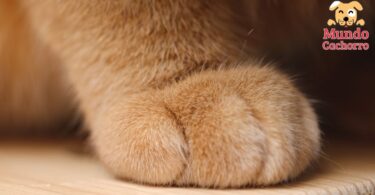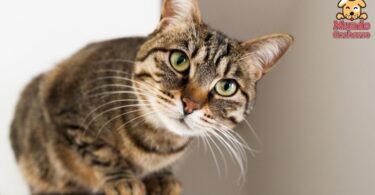Although a chubby cat may be a charming sight, the reality is that overweight kitties are not good for you. In fact, you need to help your kitty maintain a healthy weight to avoid later health problems.
Indice
Controlling overweight in your kitten requires a combination of proper diet, exercise and supervision. In this post we prepared some tips that will help your kitty maintain a healthy weight.
Controlling overweight in your kitten
- Consult a veterinarian: Before starting any weight loss program for your kitten, it is important that you take your kitten to the veterinarian for a complete check-up. The veterinarian will evaluate your kitten’s health and determine if he is overweight or if there are other medical conditions that may affect his weight.
- Proper feeding: Be sure to feed your kitten a high quality food specifically for growing cats. Follow the feeding guidelines provided by the manufacturer and avoid excessive treats, which can contribute to weight gain.
- Portion control: Measure the amount of food you feed your kitten to avoid overfeeding. Follow the veterinarian’s recommendations as to the amount of food appropriate for their age, size and activity level.
- Avoid free feeding: Don’t leave food available all the time. Establish regular feeding times and remove the plate after each meal.
- Increase physical activity: Play regularly with your kitten to keep it active and moving. Use interactive and stimulating toys to encourage exercise and play.
- Mental stimulation: In addition to physical exercise, offer your kitten mentally stimulating toys and activities, such as puzzles or toys to fill with treats.
- Avoid overfeeding: Don’t give in to your kitten’s insistent meowing for more food. Overfeeding will only contribute to your weight gain.
- Avoid feeding human food: Human food can be high in calories and may not provide adequate nutrients for your kitten.
- Monitoring and follow-up: Weigh your kitten regularly to make sure it is maintaining a healthy weight and make adjustments to diet and exercise if necessary.
Remember that each cat is unique and may require an individualized approach to weight management. Always seek the advice of a veterinarian to develop an appropriate and safe weight management plan for your cat.
How to tell if your cat is overweight
Some signs that your cat is overweight are as follows:
- Feeling the ribs: You should be able to feel your cat’s ribs easily when you gently run your hands over his rib cage. If you have difficulty feeling them due to a thick layer of fat, it could be an indication of being overweight.
- Waist shape: Look at your cat’s waist from above. You should see a slight inward curve in the waist area. If your body is more rounded and does not show this curve, you may be overweight.
- Side view: Observe your cat from the side. It should have an “hourglass” shape with a defined waist, not a straight line from the chest to the hip.
- Difficulty moving: If you notice that your cat tires easily or has difficulty jumping or playing like he used to, it could be a sign of being overweight.
Image courtesy of https://pixabay.com, all rights reserved.







